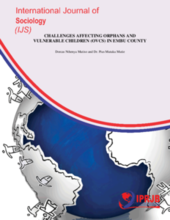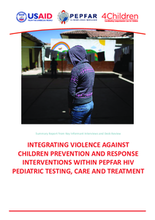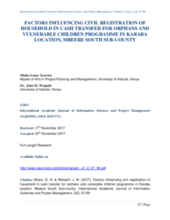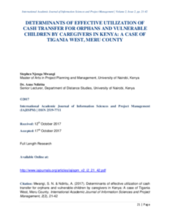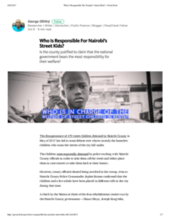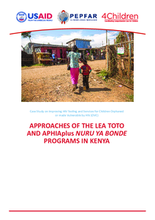This country page features an interactive, icon-based data dashboard providing a national-level overview of the status of children’s care and care reform efforts (a “Country Care Snapshot”), along with a list of resources and organizations in the country.
demographic_data
childrens_living_arrangement
children_living_without_bio
adoption
social_work_force
key_stakeholders
Key Stakeholders
Add New DataOther Relevant Reforms
Add New Datadrivers_of_institutionalisation
Drivers of Institutionaliziation
Add New Datakey_research_and_information
Key Data Sources
Add New DataChildren's Act, 2022 (Kenya)
Prevalence and number of children living in institutional care: global, regional, and country estimates
Social Protection and Disability in Kenya
Kenya Social Protection Sector Review
Country Care Review: Kenya
Child Developmental Disabilities, Caregivers’ Role in Kenya and Its Implications on Global Migration
Research findings on Alternative care system in Kenya for children without parental care
Charitable Children Institutions in Kenya: Factors Influencing Institutionalization of Children
Acknowledgements
Data for this country care snapshot was contributed by consultants with Maestral International.
Displaying 311 - 320 of 448
Reframing Early Childhood Development and Learning is a communications toolkit for building public support in Kenya for better child development policies and programmes.
The objective of this study was to establish the types of abuse experienced by adolescents with mild and moderate symptoms of anxiety disorder and living in charitable children’s institutions (CCIs).
The purpose of this study was to assess the challenges affecting orphans and vulnerable children (OVCS) in Embu County.
This report presents the preliminary findings from an ongoing project undertaken by 4Children that seeks to identify key opportunities to incorporate violence prevention and response interventions within priority PEPFAR Program Areas at clinical and community levels.
The purpose of the study was to establish the influence of cash transfer for orphans and vulnerable children programme on civil registration in Karaba Location of Mbeere South Subcounty. The study sought to determine how demographic characteristics of the caregivers, challenges faced by caregivers, household priorities of caregivers and household size affect civil registration.
This report presents the results of a scientific research on the topic of Social Exclusion of Vulnerable Youth, commissioned by SOS Children’s Villages Netherlands.
The purpose of the study was to investigate the determinants of the effective utilization of cash transfer for orphans and vulnerable children by caregivers in Tigania West SubCounty which has 1320 beneficiaries in the programme.
Following the disappearance of 470 street-connected children after being detained in Nairobi County, county officials claim that it is the responsibility of the federal government to house and rehabilitate the children.
In this case study, Coordinating Comprehensive Care of Children (4Children) documents and evaluates the work of COGRI’s Lea Toto program and the FHI360 led APHIAplus program in Kenya.
This study investigated the incidence of maltreatment experienced by children living outside parental care, comparing the prevalence of abuse between children living with extended family, children living in institutional care, and children living or working on the street.

